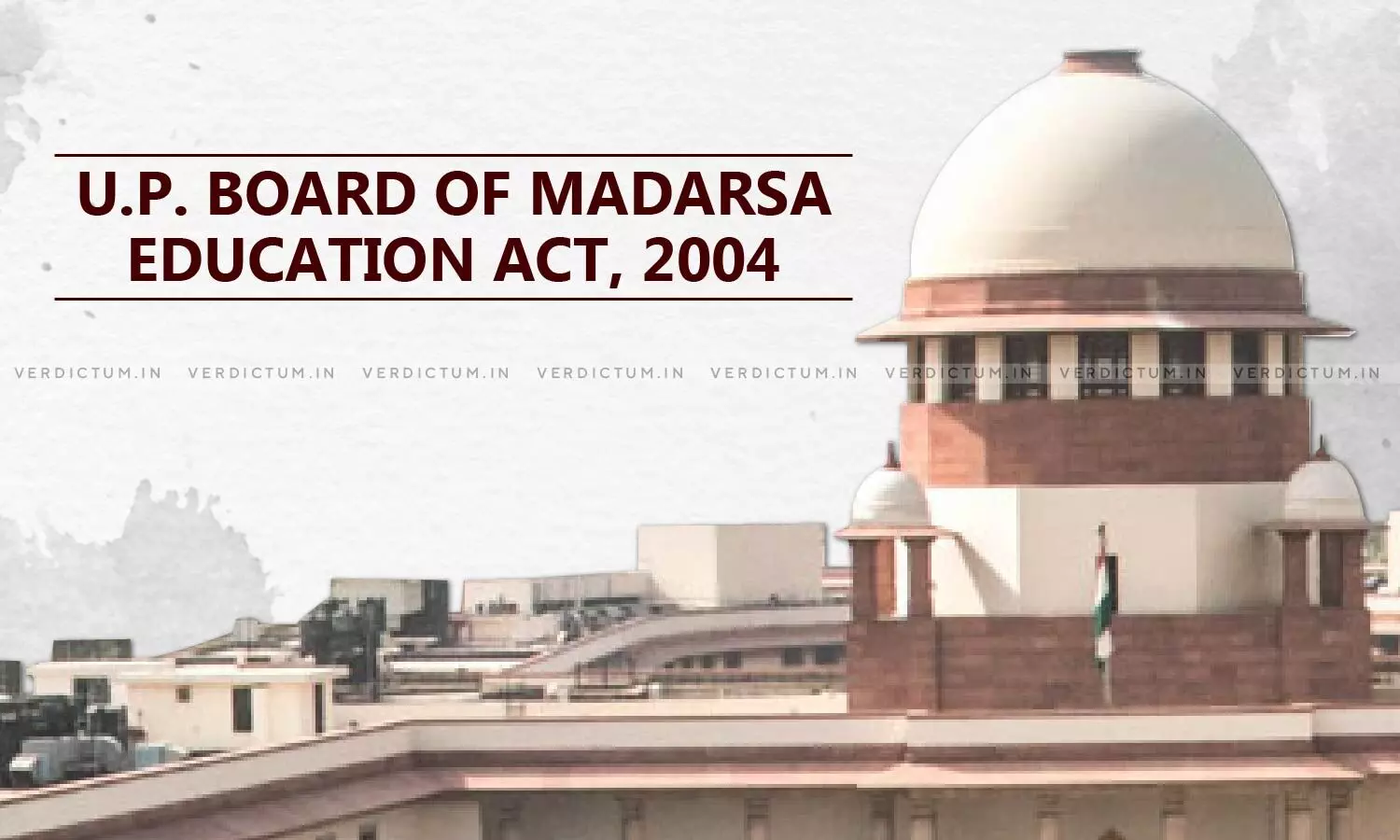
"In Conflict With UGC Act": Supreme Court Declares UP Madarsa Act Provisions On Higher-Education Degrees Such As 'Fazil' And 'Kamil' Unconstitutional
 |
|The Supreme Court has declared that provisions of the U.P. Board of Madarsa Education Act that attempt to regulate the Fazil and Kamil degrees are unconstitutional.
The Bench of Chief Justice DY Chandrachud, Justice JB Pardiwala, and Justice Manoj Misra held that these state provisions are in conflict with the University Grants Commission (UGC) Act, enacted under Entry 66 of List I, and hence lie beyond the legislative competence of state governments.
However, while observing that the Act is well within the legislative competence of the State Legislature, the Court has upheld the constitutional validity of the Act and set aside the Allahabad High Court judgment that declared it 'unconstitutional'.
Entry 66 of List I in the Indian Constitution grants Parliament exclusive authority to legislate on “coordination and determination of standards in institutions for higher education or research and scientific and technical institutions.” Accordingly, the UGC Act, which standardizes higher education in India, was enacted by Parliament to ensure the consistency and quality of higher education across the country.
"The Madarsa Act has been enacted pursuant to Entry 25 of List III. This Court has held in a consistent line of precedent that the UGC Act occupies the field with regard to the coordination and determination of standards in higher education. Therefore, state legislation which seeks to regulate higher education, in conflict with the UGC Act, would be beyond the legislative competence of the State legislature," the Court observed.
The Court highlighted a long-standing precedent that central legislation under Entry 66 supersedes conflicting state regulations, especially those affecting higher education standards. Citing the 2005 case of Prof. Yashpal & Anr vs. State of Chhattisgarh, the Court reaffirmed that where the UGC Act has laid down specific standards, state laws that diverge or conflict are deemed unconstitutional.
Under Section 22 of the UGC Act, only institutions recognized or established by central or state laws, deemed universities, or institutions empowered by Parliament, can confer degrees. The Madarsa Act, however, grants regulatory powers to state Boards, which include setting curricula, conducting examinations, and issuing degrees such as Fazil and Kamil, equivalent to bachelor’s and postgraduate degrees, respectively.
The Court found that these provisions conflicted with Section 22 of the UGC Act, which restricts the authority to confer degrees to only centrally recognized institutions.
The Bench ruled that the UGC Act’s mandate to coordinate and standardize higher education across India makes it the prevailing legislation, thereby limiting states from independently regulating degrees or courses without adhering to UGC standards.
"The Madarsa Act to the extent to which it seeks to regulate higher education, including the ‘degrees’ of Fazil and Kamil, is beyond the legislative competence of the State Legislature since it conflicts with Section 22 of the UGC Act. Entry 25 of List III, pursuant to which the Madarsa Act has been enacted, has been expressly made subject to Entry 66 of List I. The UGC Act governs the standards for higher education and a state legislation cannot seek to regulate higher education, in contravention of the provisions of the UGC Act," the Bench held.
Cause Title: Anjum Kadari & Anr. v. Union of India & Ors. [Neutral Citation No. 2024 INSC 831]
Click here to read/download the Judgment